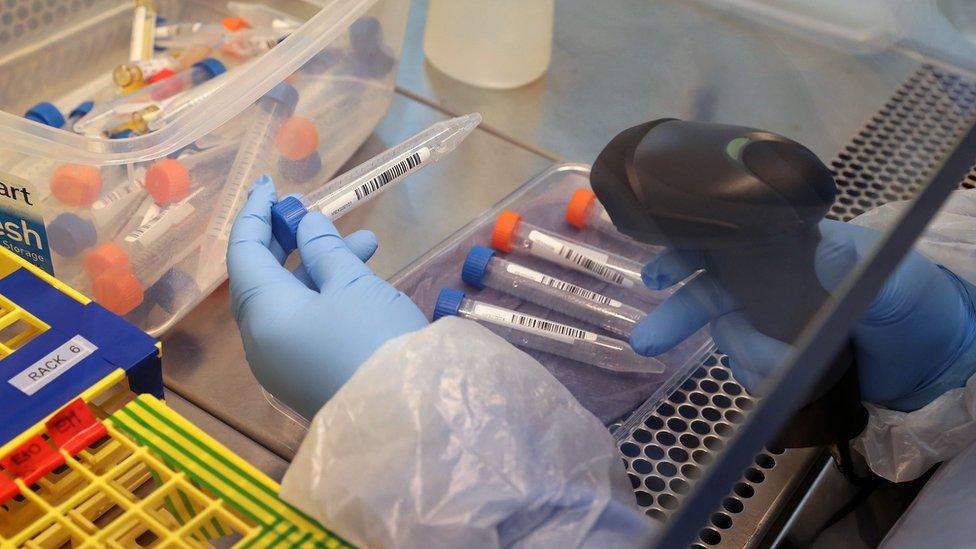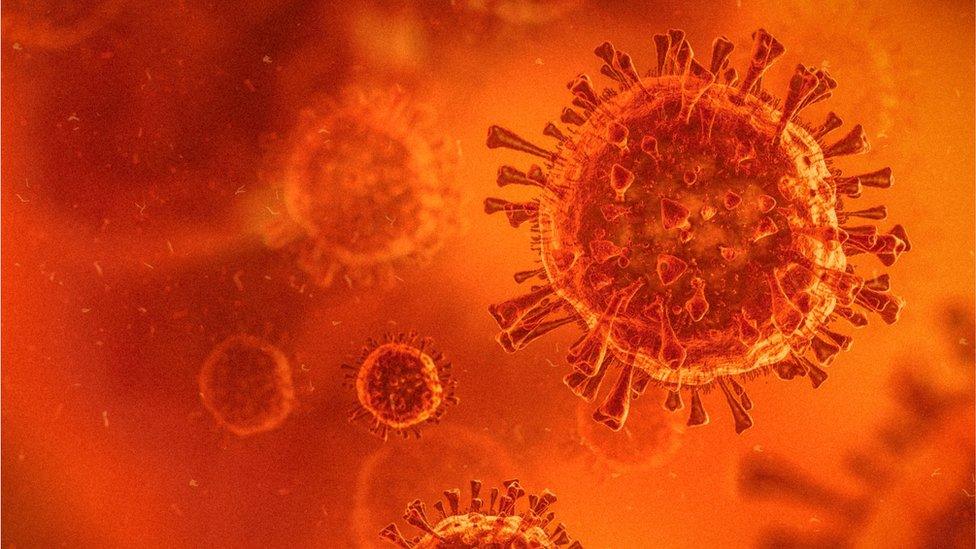Covid-19: NI concern at spread of new coronavirus variant
- Published

Health officials in Northern Ireland are concerned that the spread of a variant form of coronavirus could have "substantial consequences", according to NI's chief scientific adviser.
Prof Ian Young said the reproduction rate of the virus could rise by between 0.4 and 0.6 as a result.
On Wednesday, the health minister confirmed a positive case of the new strain had been detected in NI.
However, Prof Young said detecting new variants "is not unexpected".
"This virus gradually changes", he explained, but "we wouldn't want it to become well established or the dominant form".
The comments came as the Department of Health recorded a further 11 coronavirus-related deaths in Northern Ireland within the past 24 hours, with 841 people testing positive for the virus.
Prof Young said the current reproduction rate - or R number - is about 1 to 1.2.
R is the number of people that one infected person will pass on a virus to, on average.
"If we had the variant form of the virus and we were behaving in the same way, R would probably be closer to 1.6 or 1.8 and clearly that would have substantial consequences," he told BBC News NI's Good Morning Ulster.
"It is a big difference and we are absolutely concerned about this virus," Prof Young continued.
"We can see there are parts of the UK and indeed the Republic of Ireland where R is sitting at that sort of level, that may be due to the variant virus in some cases.
"In other cases it will just be due to how people are interacting with each other, the number of contacts that people have."
Prof Young told The Nolan Show it is "very unlikely that we could keep R at less than 1 and schools open" if the new variant became the dominant form of the virus.

Health Minister Robin Swann said it is likely the variant has been in NI for some time
Health authorities in Northern Ireland became aware of the new variant "as early as we could have done", the chief scientific adviser said, adding "it is not inevitable that it will become well established".
"There has been a very large amount of work done to understand it and understand the spreading."
Prof Young urged people to be "really careful" during the six weeks of restrictions which begin in NI on 26 December and "to minimise their interactions".
'Jury's out'
Prof Sam McConkey, an infectious diseases expert from the Royal College of Surgeons in Ireland, said he is "sceptical" that the coronavirus variant is "any worse of a disease".
He said he does not believe it will "evade the vaccine", nor if it "needs different treatment".
Concerns that the variant could be more infectious have led a number of countries, including the Republic of Ireland, to limit travel with Great Britain, where its spread has been detected in the south east of England.
However, Prof McConkey told BBC News NI "the jury's out" on research that the variant could be more transmissible, possibly by as much as 70%.
Announcing the positive case, Health Minister Robin Swann said the virus could have been in Northern Ireland for some time.
He encouraged people to "redouble our efforts to stop the virus spreading".
On Thursday, Irish health officials confirmed eight further deaths related to the virus, bringing its death toll to 2,192.
Related topics
- Published21 December 2020

- Published23 December 2020

- Published17 December 2020

- Published23 December 2020
